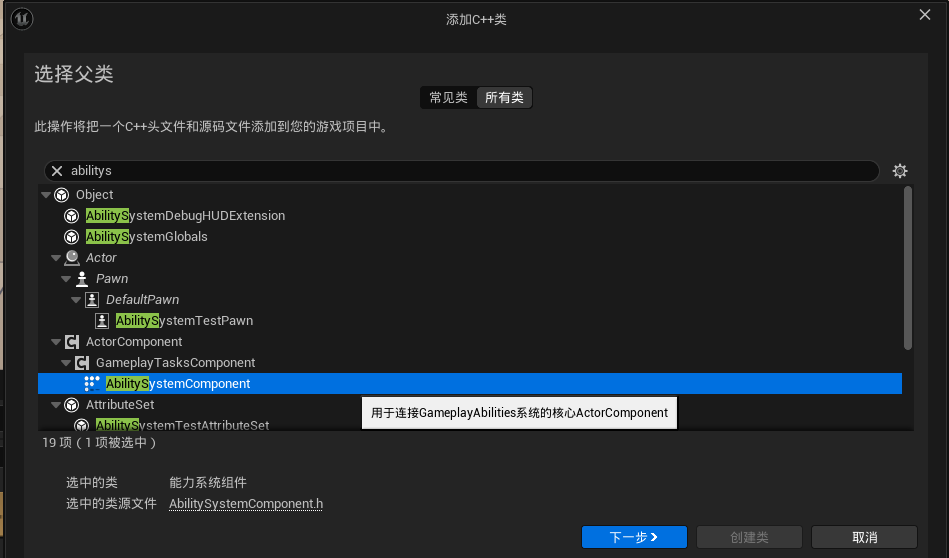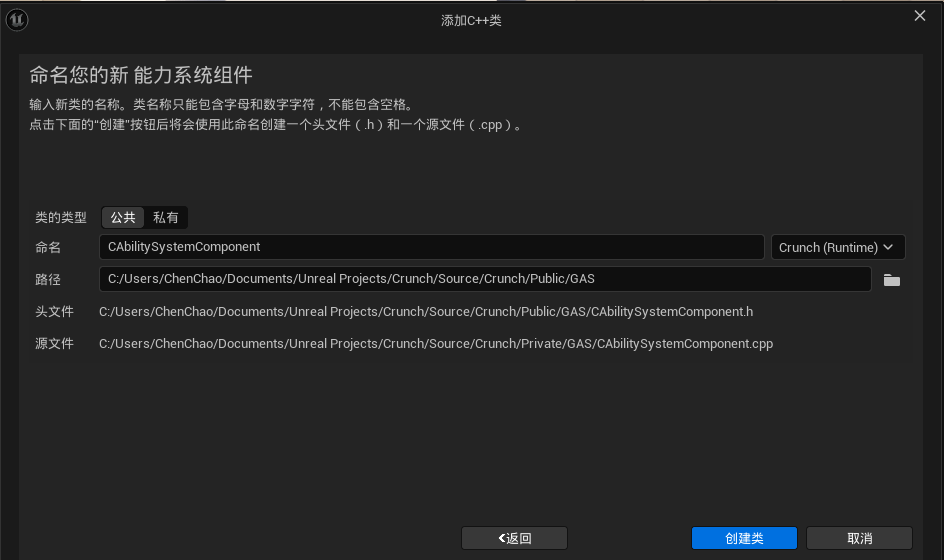一、添加能力系统组件
1.添加插件:GameplayAbilities

2.添加能力系统组件


3.在Source/Crunch/Crunch.Build.cs中添加依赖模块:
// Copyright Epic Games, Inc. All Rights Reserved.
using UnrealBuildTool;
public class Crunch : ModuleRules
{
public Crunch(ReadOnlyTargetRules Target) : base(Target)
{
PCHUsage = PCHUsageMode.UseExplicitOrSharedPCHs;
PublicDependencyModuleNames.AddRange(new string[] { "Core", "CoreUObject", "Engine", "InputCore", "EnhancedInput" });
PrivateDependencyModuleNames.AddRange(new string[]
{
"GameplayAbilities",
"GameplayTasks",
"GameplayTags"
});
// Un




 最低0.47元/天 解锁文章
最低0.47元/天 解锁文章

















 1592
1592

 被折叠的 条评论
为什么被折叠?
被折叠的 条评论
为什么被折叠?








